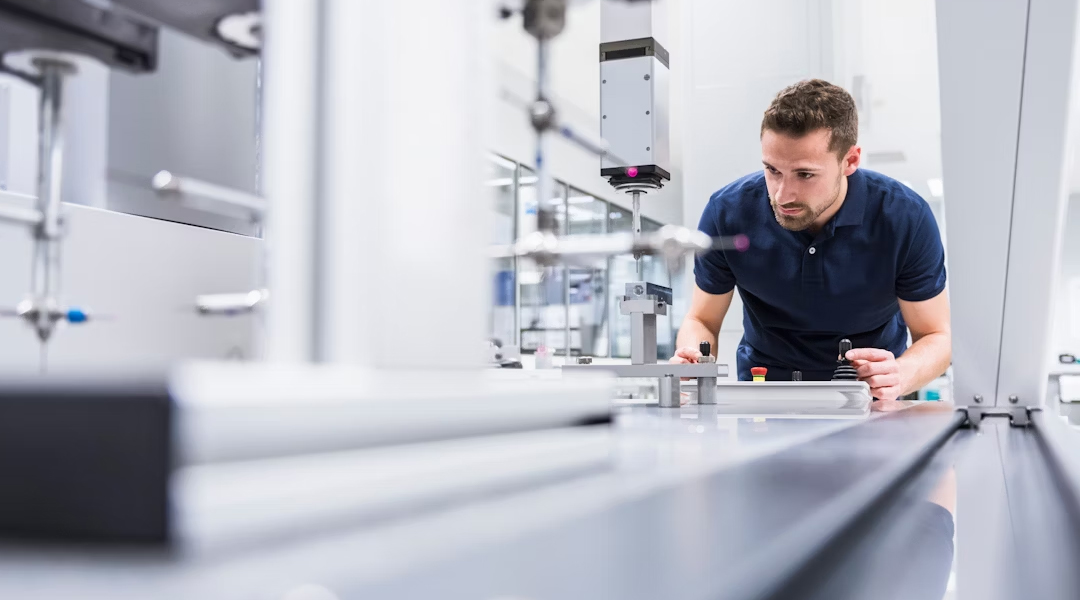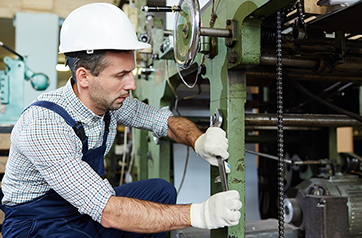In any industry, the efficient and smooth operation of machinery is critical to the success and productivity of a business. For companies that specialise in metal manufacturing and food processing, the reliability and performance of their equipment are vital to their bottom line. In order to ensure that businesses can continually operate at their peak, regular maintenance of machinery is essential.
Metal manufacturing and food processing involve the use of complex machinery and equipment that need to function optimally. These sectors need their equipment to perform reliably without causing any downtime, unexpected failure, or costly repairs. Regular machinery maintenance is crucial in order to avoid these issues and ensure that the machinery is operating to the best of its potential. In this blog post, we’ll delve into the importance of regular maintenance of metal manufacturing machinery and food processing equipment, discussing the benefits it can offer and providing helpful tips to ensure business owners effectively manage their maintenance routines.
The Benefits of Regular Maintenance
One significant benefit of regular maintenance of metal manufacturing machinery and food processing equipment is the prevention of costly failures and breakdowns. By identifying and addressing potential issues before they escalate into full-blown problems, companies can avoid costly downtime and repairs, as well as increase the overall lifespan of their machinery. This is particularly true when it comes to dealing with wear and tear, which can cause components to fail prematurely if not addressed.
Another key advantage of carrying out regular maintenance is the enhancement of efficiency and performance. Over time, machinery performance may degrade, leading to lower output and reduced quality in the products being produced. By performing regular maintenance, business owners can ensure that their machinery continues to operate at peak efficiency, helping to maintain the highest product quality standards.
Safety is also a paramount concern in industries like metal manufacturing and food processing. Regular maintenance ensures that all safety features and protection measures on machinery are functioning correctly, reducing the risk of accidents and injuries to workers. This, in turn, can lead to better employee morale and a safer working environment overall.
Developing a Comprehensive Maintenance Plan
In order to reap the benefits of regular maintenance, businesses need to develop a comprehensive maintenance plan that takes into account the specific requirements of their machinery and equipment. This plan should include a schedule for routine inspections, detailed checklists for each machine, and procedures for addressing any issues that may arise during the maintenance process. Some key factors to consider when developing a maintenance plan include:
- The manufacturer’s recommendations for maintenance schedules and procedures
- The type and complexity of the machinery in use
- The operating conditions (e.g. temperature, humidity, dust levels) in which the machines are operating
- Any specific risks or hazards associated with the machinery or equipment
Implementing Your Maintenance Plan
Once you have developed a thorough maintenance plan, it’s essential to ensure that it is properly implemented and adhered to. Establishing clear responsibilities for the maintenance tasks, along with specific deadlines for completion, can help keep things on track. Some tips for effective implementation of your maintenance plan include:
- Assigning specific maintenance responsibilities to individual team members
- Training employees on the correct procedures for carrying out maintenance tasks, including the safe use of tools and equipment
- Using digital tools, such as maintenance management software, to track maintenance schedules and generate reports on progress and performance
- Regularly reviewing and updating the maintenance plan to ensure it remains relevant and effective
Outsourcing Maintenance Tasks to Professional Service Providers
While it is possible to perform many maintenance tasks in-house, there may be instances where it is more cost-effective and efficient to outsource certain maintenance tasks to professional service providers like Meng Solutions. Some benefits of outsourcing your maintenance needs include:
- Access to highly skilled and trained technicians with specialised knowledge of your machinery
- The ability to more effectively manage your maintenance budget and resources
- Greater flexibility in scheduling maintenance work, as outsourcing providers can often operate outside of regular business hours
Invest in Regular Maintenance for Long-Term Success
The importance of regular maintenance for metal manufacturing machinery and food processing equipment cannot be overstated. By investing in a well-planned maintenance routine, businesses can prevent costly downtime, enhance efficiency, and create a safer working environment for their employees.
To learn more about how Meng Solutions can help you with your machinery maintenance needs, please contact us for a free consultation. Ultimately, taking the time to properly maintain your machinery is a wise investment that will pay off with increased productivity, reduced costs, and improved worker safety in the long run.




